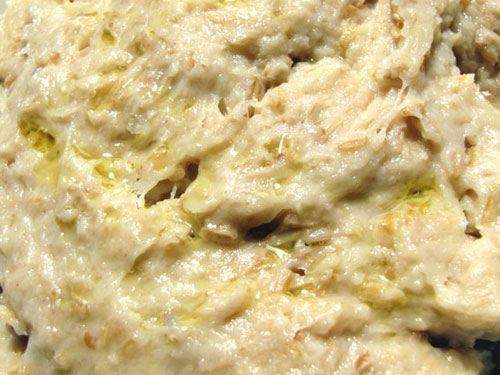Ramadan is the 9th month of the Islamic calendar. It is not just about fasting which Muslim practice from dawn to sunset, but a time for showing compassion, leaning to be patient and forgiving.
Charity and good deeds are always important in Islam but they have more significance in the holy month. For instance many mosques and charitable organisations along with individuals offer free meals (often in the form of a fast-breaking dinner called iftar) to the needy and poor throughout the course of Ramadan.
In non-Muslim countries like the UK or the States or Singapore, Muslims in general gather at the mosque and take part in the communal breaking of fast as this is an excellent opportunity to meet and interact with fellow Muslims. Here in the UAE, most people break fast at home with family and the majority of those who take iftar in the mosque are male labour and workers from South Asian countries.
There are some traditional and special dishes, both savoury and sweet, that are prepared particularly during Ramadan and they vary from one country to another.
In the Arabian Gulf because of the substantial presence of Pakistanis, Indians and other South Asians, 'biryani' is one such dish that can never be missed. Initially and traditionally biryani was a deluxe, rich dish that was enjoyed only on special occasions, but today it's a popular and staple meal readily served in any Persian or South Asian restaurant / eatery.
 |
| Biryani served at a mosque... |
However, no matter how good the quality or how tasty it may be or how starving you are, eating biryani every single day as a first meal of the day not only raise some serious health concerns but it's a sheer challenge.
The other day I paid a visit to a Pakistani friend of mine whose brother is a resident imam in charge of a mosque in Al Barsha. Last Ramadan I had also visited this family to join iftar. When the iftar was delivered, I was taken aback and then dismayed at the biryani - everything about it, the way it was served, the quality of the rice or meat or every single characteristic, was intact as the previous year's!
It seems public cooking at mosques is not allowed in the UAE, so biryani (or iftar meals) is catered. Evidently by the same caterers at my friend's mosque... If I was not mistaken, the imam looked totally put off by the daily intake of biryani. And who could blame him??
When I lived in London or Pakistan, I loved biryani so very much. When I shifted to Singapore later and did work as a volunteer helping with iftar during Ramadan, I ended up eating biryani 30 days in a row.
In Singapore, a group of caterers actually prepared biryani on the mosque premises and they used good-quality ingredients including vast quantities of expensive nuts, sultanas or raisins. However, enough is enough! Since then I've been meticulously avoiding biryani whenever I come across it!


